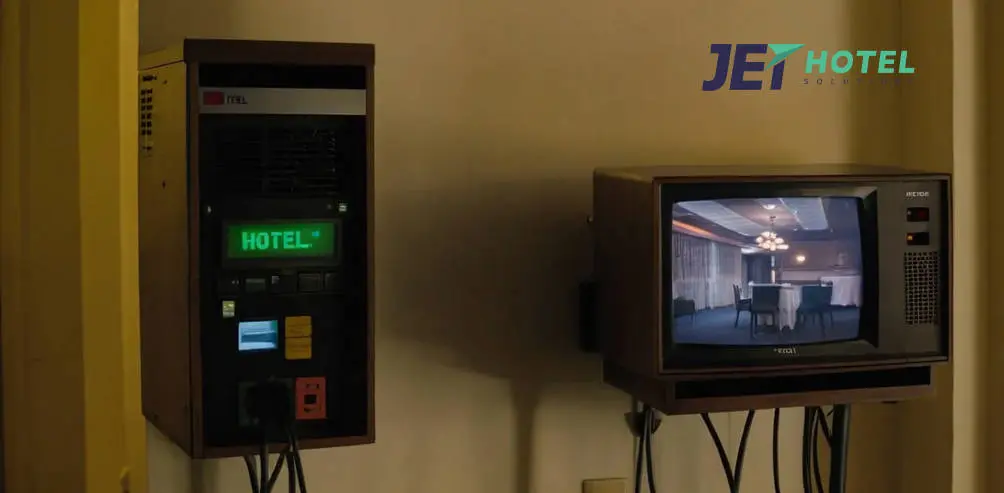Wired Connections in Hotels: Understanding the Risks and Ensuring Security
When traveling for business or leisure, the convenience of accessing the internet through hotel Ethernet seems appealing. Despite the common belief that wired connections are safer than public Wi-Fi, our (https://www.jethotelsolutions.com/) experiences and extensive research suggest otherwise.
This article aims to debunk the myths about Ethernet security in hotels and provide practical advice to keep your data safe.
The Fallacy of Wired Connection Security
Many travelers have long assumed that a wired internet connection in a hotel room provides a more secure link to the online world than wireless alternatives. This belief is rooted in the physical and seemingly private nature of a wired connection. However, the security of these connections is not as robust as many believe.
Michael Horowitz, a seasoned computer consultant and advocate for defensive computing, argues that wired connections offer no more protection than Wi-Fi. In fact, vulnerabilities inherent in the Ethernet protocol can expose users to significant risks.
As outlined in an episode of Steve Gibson’s “Security Now” podcast, these vulnerabilities include outdated security assumptions and the potential for interceptive attacks like ARP spoofing and man-in-the-middle attacks.
Technical Insights into Ethernet Vulnerabilities
Ethernet was designed in a different era, one where network security threats were not a concern. The protocol assumes a trusted network environment which is rarely the case in hotels where numerous guests share the same infrastructure. This shared environment facilitates potential security breaches that can compromise personal and financial data.
For example, once connected to the hotel’s Ethernet, your device becomes part of the hotel’s Local Area Network (LAN). This network typically extends beyond your room to hundreds of others, any of which could house a potential attacker.
Techniques like ARP poisoning allow malicious actors to intercept and alter data transmitted over the network without the user’s knowledge.
Real-World Experiences and Concerns
In online forums and personal conversations with fellow travelers, concerns about hotel Ethernet security are common. A user named kyphysics on a technology forum shared his apprehension about using hotel Ethernet for accessing sensitive financial information. Responses in the thread underscored a lack of trust in hotel network security, highlighting the need for individual protective measures.
Best Practices for Secure Hotel Internet Use

- Employ a Virtual Private Network (VPN): A VPN is crucial for securing your internet connection by encrypting your data. This encryption makes it nearly impossible for someone on the same network to intercept your information. Ensure that the VPN is activated before connecting to any network, not just after you detect a threat.
- Verify the Network’s Authenticity: Always confirm the legitimacy of the hotel’s network with the front desk before connecting. This precaution helps avoid rogue networks set up to mimic legitimate ones, a common tactic used by cybercriminals.
- Use HTTPS: Secure your web browsing by ensuring that websites use HTTPS, which encrypts data between your browser and the website. Tools like HTTPS Everywhere can enforce this security on sites that support it.
- Update Your Security Software: Before traveling, update your antivirus and anti-malware software. Regular updates help protect against the latest threats and provide a crucial defense layer.
- Alternative Data Options: When feasible, use your mobile data connection as a personal hotspot. This method can provide a more secure alternative to hotel networks, especially for brief online activities involving sensitive data.
- Educate Yourself and Your Team: For business travelers, it’s vital to educate yourself and your team on these security measures. At Jet Hotel Solutions, we conduct regular training sessions on cybersecurity best practices for our employees.
Long-Term Implications and Recommendations
The increasing reliance on digital solutions in hotels, from online check-ins to smart room controls, means that network security is more critical than ever. Hotels must invest in robust cybersecurity measures to protect their guests. As consumers, we must remain vigilant and informed about the potential risks and the best practices for mitigating them.
Conclusion: A Call for Increased Awareness and Action
Understanding the vulnerabilities of hotel Ethernet and taking proactive steps to protect your digital information is essential in today’s interconnected world. By implementing the recommended practices, travelers can significantly reduce their risk of falling victim to cyber threats.
Our company advocates for these security measures not only for our clients but in every aspect of our operations. By fostering awareness and taking collective action, we can ensure a safer digital experience for all travelers.
